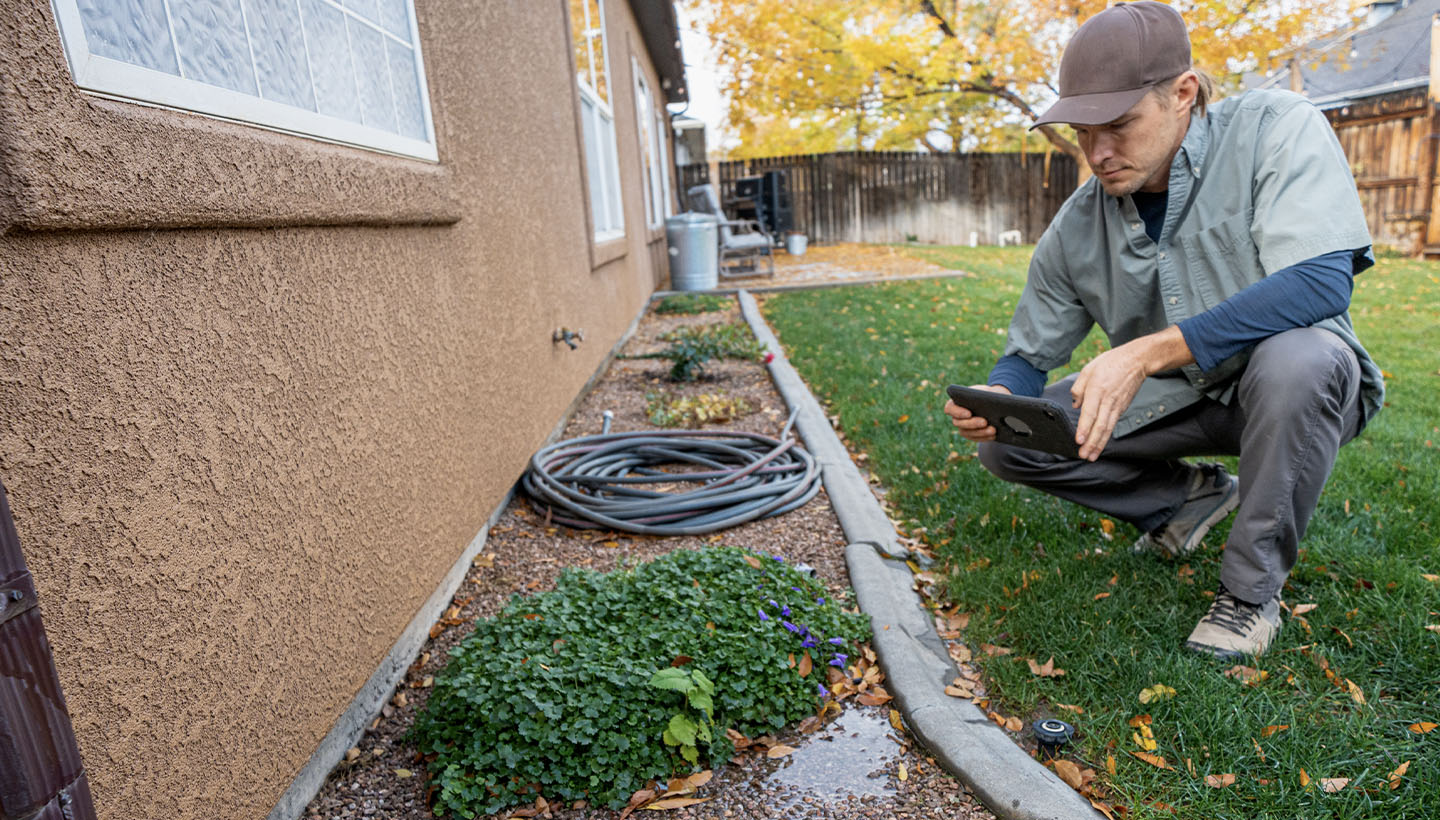
Breaking down the cost of a foundation inspection.
It’s just as true in life as it is in home inspections — starting from a stable foundation is everything! If the foundation suffers any issues in its structural integrity, even cracks or slopes, the entire property could be in danger. Then, you won’t be worried about the cost of inspecting as much as the cost of replacing your foundation — a way bigger headache. The cost of foundation inspections depends on a few factors, but on average, foundation inspections can run anywhere between $300 and $1,000.
Factors that affect the cost of a foundation inspection.
During a foundation inspection, a home inspector looks for warning signs like cracks, strange drainage patterns, and sloping floors. Like a standard inspection, there are a number of predictable factors, but there are also some sneaky ones to look out for.
Size of the house.
Generally, the bigger a home is, the more time-consuming it’ll be to inspect. With a larger property comes more walls (perimeter and interior), basements, crawlspaces, and exterior features (like patios) that will need to be checked thoroughly for signs of damage or shifting. The presence and severity of foundation issues is not directly linked to a home’s size, but since it takes longer, foundation inspections are more expensive for larger properties.
Age of the house.
Aging isn’t all fine-lines and joint pains, except maybe in the case of houses. The older a property is, the more likely it is that it’s begun to settle, crack, warp, and fall apart. The homes that have issues or are beginning to deteriorate will need repairs, which can also be costly (but necessary).
Location of the house.
Factors like soil composition and climate can make or break a foundation — literally.
- Sandy Soil. States like Florida (where much of the soil is sandier) face challenges with improper drainage, which could cause erosion issues in a foundation.
- Clay Soil. The repeated swelling and contracting of clay can cause issues for states like Louisiana and Arizona, where the soil is quite clay-heavy. So despite drastically different climates, their home foundations are equally prone to cracking, heaving, and shifting.
- Climate Factors. Fault-line states like California will see more foundation cracks from seismic activity, and humid states like Texas can see issues with wood rot or moisture infiltration. In Midwestern states like Illinois, frost heave is another common issue — that is, freezing and thawing in cold months that upheaves a foundation upward and damages walls and flooring.
Every state has its own set of issues, so you may be facing more issues depending on where your home is located and the type of foundation your home has.
Types of foundations.
Not all homes are built alike! Your home likely has one of the following kinds of foundations. It’s always a good idea to be aware of ways you can maintain your foundation so that inspections come back positive, and you can avoid replacements or costly repairs! Since some foundation types are harder to inspect than others, you might need to pay more depending on the type you have, or even call in a specialist.
Note: According to the International Association of Certified Home Inspectors (InterNACHI) Standards of Practice, inspectors are not required to attempt to enter crawlspaces that are difficult or hazardous to access. They are also not required to move stored items or debris, so make sure your foundation areas are clear and accessible before your inspection!
Full basements.
Full basements are convenient for their added storage and living space potential, but often fall prey to some annoying issues. Moisture is a big one. They are also (typically) time-consuming to inspect, which can cause them to be a little pricier. In full basements, common issues include:
- Water damage or leaks
- Cracking
- Mold and mildew
Crawlspace foundations.
Crawlspace foundations are typically built with short walls on footings, usually at or above ground level (grade). Sometimes they are also built into bedrock, so in regions with more clay –based soil, this foundation would be able to handle swelling and contracting.
Crawlspaces can be difficult to get into and fully inspect, so it can be time-consuming, which may add to the cost of this type of inspection. Then, the top three issues with crawlspace foundations are:
- Water intrusion
- Insulation and ventilation problems, which cause temperature fluctuations and higher humidity levels in the home
- Pest infestations
Concrete slabs.
The concrete slab foundation (also commonly referred to as slab-on-grade) is the easiest to inspect, meaning it should be a little more affordable to do so. It should be relatively quick for your inspector to look for the following signs of wear and tear:
- Cracks
- Heaving/settling/other kinds of unevenness
- Drainage issues
Pier and beam piling.
Pier and beam piling foundations are similar to crawlspaces, minus the masonry perimeter walls. They typically use heavy-duty wooden piers and beams to support and protect the home from flooding (which is particularly helpful in coastal areas). That said, being constructed of wood, these piers can be susceptible to the following issues:
- Pest infestations
- Degradation over time (weakening the structure)
- Mold/mildew/rot
A good inspection is worth the money.
The cost of a foundation inspection depends on many predictable factors (the size, age, condition of the home), but it also depends on trickier, sneakier factors — foundation type, material, and even the home’s location. In many cases, foundation inspection will be part of a full-home inspection package price. But, if you have specific concerns regarding your home’s structure, or issues that come up during your standard inspection, you’ll need to get a more detailed look by a specialist (like a foundation engineer). Additional services like these will cost a little bit extra.
We could be biased, but inspectors trained by AHIT are top-of-the-line. They’re trained and prepared to handle anything with our immersive in-person and online courses, and they have fun doing it. You won’t find this kind of quality and passion anywhere else. When you consider who you want to hire for your home inspections, look for AHIT-trained professionals!




